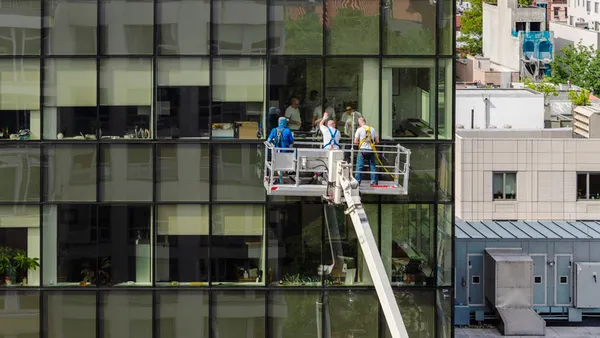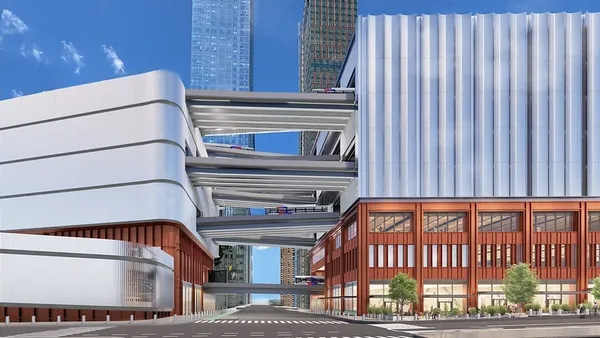Dive Brief:
-
A New York judge approved a years-long class action settlement that establishes a plan to improve the safety and accessibility of the city's sidewalks for the disabled community.
-
The agreement requires a citywide survey to determine which corners need curb cuts added or upgraded, and mandates a schedule to ensure that every corner in the city becomes accessible.
-
The settlement brings an end to two separate class action lawsuits. One was originally filed in 1994 and initially settled in 2002 by the United Spinal Association. The most recent was filed in 2014 by the Center for Independence of the Disabled, New York (CIDNY) and two individuals challenging the dangerous, crumbling pedestrian ramps in lower Manhattan.
Dive Insight:
New York City sidewalks have posed hazards to the disabled community for decades due to inaccessible curb cuts, potholes, sloped ramps, and a lack of detectable warnings for blind pedestrians.
"New York City is a very walkable city," Disability Rights Advocates' Managing Director of Litigation Michelle Caiola told Smart Cities Dive. "The ability to traverse the city streets is just a very fundamental right and it requires that the city follow these guidelines to make sure everything is in compliant condition."
New York will be required to maintain curb cuts with the same frequency that roads are repaved, ensuring that the city's heavy traffic, weather and congestion don't erode the curb cuts over time. The city has also agreed to install detectable warnings at all corners, which is crucial for individuals who are blind, according to Caiola.
The settlement should remind cities that conducting a self-analysis to address these barriers is required by the American Disabilities Act, she said.
Cities across the country are working to improve their streets and sidewalks for disabled residents and visitors. Smart Cities for All, a collaboration between G3ict and World Enabled, launched "Inclusive Innovation for Smarter Cities" last year to encourage planners to consider people with disabilities in new technology design plans. The group partnered with AT&T to launch a playbook in May that outlines the steps cities can take to prioritize accessibility.
Despite the recent progress and attention paid to designing inclusive cities, new hurdles are also arriving on city sidewalks — literally.
Disability Rights California filed a lawsuit this year against the city of San Diego and scooter companies Bird, Lime and Razor, alleging the dockless vehicles make sidewalks unsafe. Bird and Lime advise users to stay off sidewalks and park their vehicles in safe places. But beyond urging consumers to use the devices responsibility, cities and private companies have little ability to enforce the rules.
A class action lawsuit was also brought against Uber by Pittsburgh-area residents for a lack of wheelchair-accessible vehicles (WAVs) in the city. Brought by the Disability Rights Advocate (DRA) and Carlson Lynch LLP, the DRA has filed similar lawsuits against Uber in California and New York. A recent report also found that 70% of Uber and Lyft ride requests don't offer WAVs in New York City.
Private sector companies are partnering with cities to bring a growing number of options to individuals with disabilities in cities. Lyft announced in June that it would bring more WAVs to San Francisco and Los Angeles through a partnership with First Transit.
May Mobility also recently released details about a wheelchair accessible-version of its autonomous shuttle. The company plans to roll out the vehicles in Columbus, OH; Providence, RI; and Grand Rapids, MI.










